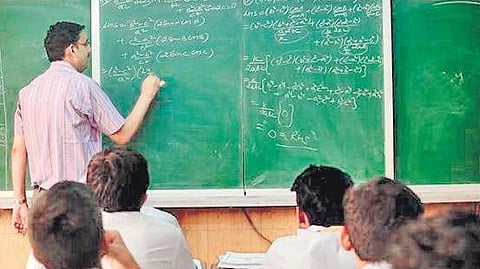

BENGALURU: The Prayoga Institute of Education Research has launched ‘Dhatu’, a technology enabled platform for students to make math less intimidating and more accessible. Developed in collaboration with Stanford’s Prof Jeffrey Ullman, Dhatu provides customisable MCQ-based self-assessments sourced from the NCERT portions of Class 9-12.
“Unlike conventional MCQs (multiple choice questions), Dhatu not only identifies the wrong answers but also analyses why a student chose a particular option, helping them understand where they went wrong,” said Vallish Herur, managing trustee of Prayoga Institute. “Our core idea is to focus on conceptual understanding and problem solving which are often ignored in the learning process.”
It uses the Root Question Method to guide students through a logical progression of thought. Each question builds on a central “root” idea, providing choice explanation and feedback, helping learners connect the dots and understand the ‘why’ behind the concepts. Dhatu involves three levels which involves the introduction of concepts, the intervention and interconnectivity of concepts, and finally how these concepts can be applied in the real world scenario.
Offered free of cost, the programme will pilot in the academic year 2025-26 and will be fully rolled out by 2027, with a focus on reaching socially and economically disadvantaged schools and supporting quality math education across diverse communities. The platform was unveiled by Abhay Karandikar, secretary, Department of Science & Technology, Government of India.